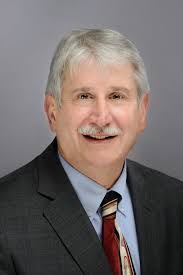Here are several books that mediators might find interesting and useful.
 1. In their book, Mistakes Were Made (But Not by Me): Why We Justify Foolish Beliefs, Bad Decisions, and Hurtful Acts (Harcourt, Inc. 2007), psychologists Carol Tavris and Elliot Aronsonexplore and explain why it is so hard for presidents, bishops, police and prosecutors – and all the rest of us – to admit mistakes: “Most people, when directly confronted by evidence that they are wrong, do not change their point of view or course of action but justify it even more tenaciously. Even irrefutable evidence is rarely enough to pierce the mental armor of self justification.” The book explains cognitive dissonance and related concepts (such as the confirmation bias) and illustrates how they permeate every aspect of our society. The examples range from the tragi-comic story of cult members who gave away their earthly belongings in anticipation that they would be transported to another planet by aliens, to the truly tragic stories of innocent people convicted by police and prosecutors who persuaded themselves that the accused were guilty, despite irrefutable evidence of their innocence, or of social workers who convinced themselves that they were eliciting repressed memories of sexual abuse from children, when in fact they were implanting such “memories.”
1. In their book, Mistakes Were Made (But Not by Me): Why We Justify Foolish Beliefs, Bad Decisions, and Hurtful Acts (Harcourt, Inc. 2007), psychologists Carol Tavris and Elliot Aronsonexplore and explain why it is so hard for presidents, bishops, police and prosecutors – and all the rest of us – to admit mistakes: “Most people, when directly confronted by evidence that they are wrong, do not change their point of view or course of action but justify it even more tenaciously. Even irrefutable evidence is rarely enough to pierce the mental armor of self justification.” The book explains cognitive dissonance and related concepts (such as the confirmation bias) and illustrates how they permeate every aspect of our society. The examples range from the tragi-comic story of cult members who gave away their earthly belongings in anticipation that they would be transported to another planet by aliens, to the truly tragic stories of innocent people convicted by police and prosecutors who persuaded themselves that the accused were guilty, despite irrefutable evidence of their innocence, or of social workers who convinced themselves that they were eliciting repressed memories of sexual abuse from children, when in fact they were implanting such “memories.”
2. For many years, economists pursued theories premised on the assumption that consumers make rational choices. It turns out that this is not necessarily so: our decisions are hobbled by all kinds of biases, as shown by the work of Israeli psychologists Daniel Kahneman and Amos Tversky, described in a new book by Michael Lewis, The Undoing Project: A Friendship That Changed Our Minds (W. W. Norton & Company 2016). Kahneman and Tversky challenged prevailing assumptions about the decision-making process and showed the ways in which the human mind errs, systematically, when forced to make judgments in uncertain situations. Their work created the field of behavioral economics, and advanced the field of evidence-based medicine, among other advances.
3. The February 17, 2017 issue of The New Yorker contains a review by Elizabeth Kolbert of three other new books. In The Enigma of Reason (Harvard Univ. Press 2017), cognitive scientists Hugo Mercier and Dan Sperber argue that our ability to reason did not evolve to enable us to solve abstract or logical problems, but instead to help us resolve the problems posed by living in collaborative groups. In a nutshell, it was more important to our hunter-gatherer ancestors to win arguments and maintain their social standing in the group than to reason clearly. In The Knowledge Illusion: Why We Never Think Alone (Riverhead Books 2017), professors Steven Sloman and Philip Fernbach describe how and why people believe that they know way more than they actually do, which they call “the illusion of explanatory depth.” Our reliance upon other people’s expertise has served our species well in the area of technology, they argue, but not so well in the area of politics and policy making. For example, when A has an opinion on, say, the Affordable Care Act that is baseless, and B relies on it, B’s opinion also is baseless; when B talks to C and C agrees with his opinion, C’s opinion is also baseless, but now that the three of them concur, they reinforce each others’ belief and tend to reject any information that contradicts their belief (remember what Tavris and Aronson said about cognitive dissonance and the confirmation bias in Mistakes Were Made?). Finally, in Denying to the Grave: Why We Ignore the Facts That Will Save Us (Oxford Univ. Press 2016), Jack and Sara Gorman cite research that suggests that we experience genuine pleasure – a rush of dopamine – when processing information that supports our beliefs, even when those beliefs pose a real threat to our well-being, such as the conviction that vaccines are dangerous.
X
About the blogger:
 Phil Moss is a member of the State of Maine’s Panel of Mediators, and has been active in alternative dispute resolution since he first entered the legal profession. In 1975, Phil was one of fifty attorneys who volunteered to participate in the pilot mediation program for the Boston Municipal Court, and in subsequent years he volunteered as a participant in pilot mediation projects for the Maine Human Rights Commission and the Maine Superior Court system. As an advocate he participated in well over 100 arbitrations and mediations, involving the hospitality industry, trucking and warehousing, supermarkets and public utilities (including nuclear power), among others. For a number of years prior to his retirement from the active practice of law, Phil was included in New England Super Lawyers, and listed in Chambers USA, America’s Leading Business Lawyers and in The Best Lawyers in America. Phil has worked pro bono publico for a number of organizations, including the Jewish Community Center of Portland, ME, the Pine Tree Council of the Boy Scouts of America and the Maine chapter of NAMI (National Alliance on Mental Illness).
Phil Moss is a member of the State of Maine’s Panel of Mediators, and has been active in alternative dispute resolution since he first entered the legal profession. In 1975, Phil was one of fifty attorneys who volunteered to participate in the pilot mediation program for the Boston Municipal Court, and in subsequent years he volunteered as a participant in pilot mediation projects for the Maine Human Rights Commission and the Maine Superior Court system. As an advocate he participated in well over 100 arbitrations and mediations, involving the hospitality industry, trucking and warehousing, supermarkets and public utilities (including nuclear power), among others. For a number of years prior to his retirement from the active practice of law, Phil was included in New England Super Lawyers, and listed in Chambers USA, America’s Leading Business Lawyers and in The Best Lawyers in America. Phil has worked pro bono publico for a number of organizations, including the Jewish Community Center of Portland, ME, the Pine Tree Council of the Boy Scouts of America and the Maine chapter of NAMI (National Alliance on Mental Illness).

